In the heart of Kashmir, where the beauty of nature meets the complexities of human experiences, Isha Malik wields an unusual palette – one that paints not just canvases, but also the landscape of mental health. As a clinical psychologist with Doctors Without Borders India/ Médecins Sans Frontières (MSF), Isha’s journey is a testament to the power of compassion and the resilience of the human spirit.
Isha is working with MSF in Srinagar and Pulwama. Her journey into mental health wasn’t a straight line, but rather a gradual realization of the profound need for compassionate care in her community.
Growing up in Kashmir, Isha witnessed firsthand the profound impact of prolonged conflict on mental health. The stigma surrounding mental illness persisted alongside these challenges, with a lack of awareness and limited access to care, created a silent epidemic. It was during her college years that Isha realized the gap in mental healthcare services, noting that until then, “I wasn’t aware of these mental health problems… I wasn’t aware that this is a medical problem, this is something that needs medical care or intervention.”
“I felt that strong sense of responsibility to work towards the betterment of our society, especially in the field of mental health,” Isha reflects. This realization set her on a path that would not only shape her career but also touch countless lives.
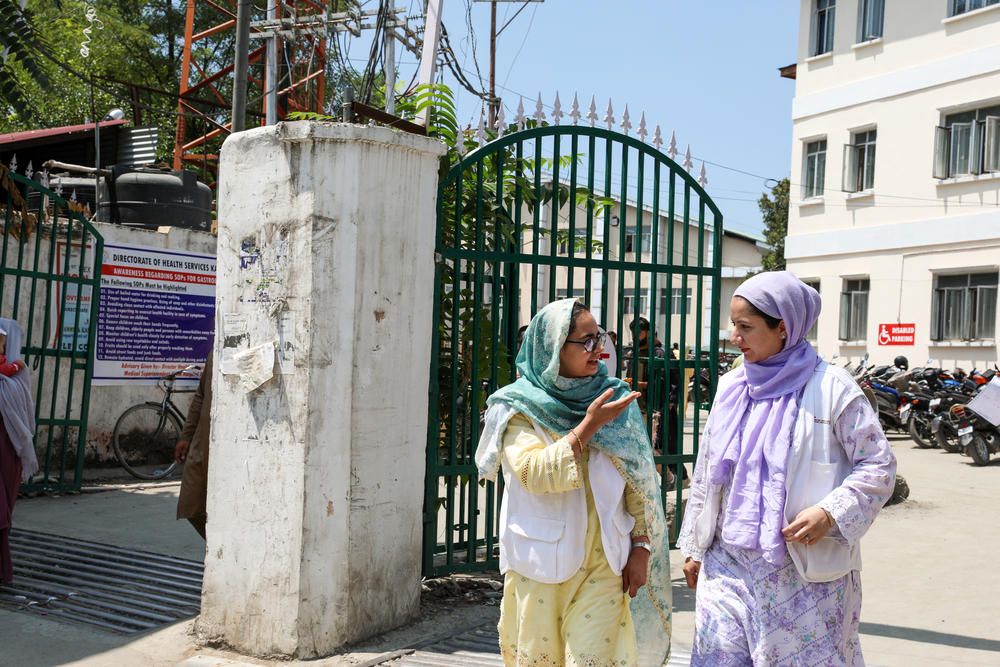
The Canvas of Compassion
At Jawahar Lal Nehru Memorial Hospital (JLNM hospital) in Srinagar and Pulwama district hospital, Isha’s days are filled with challenges and triumphs. She navigates through a complex tapestry of cultural beliefs and stigma, using her expertise to help people find their way back to mental wellness.
Like an artist carefully selecting colors, Isha approaches each person with a nuanced understanding of their unique struggles. She’s particularly adept at working with adolescents, helping them navigate the turbulent waters of growing up in a society where mental health is often misunderstood.
Painting a New Perspective
Isha’s approach is as multifaceted as her former artistic pursuits. “We have to ensure to use local language or use local phrases, expressions, idioms to make it easier for them to understand,” Isha explains.
Isha’s work extends beyond individual therapy sessions. She’s painting on a larger canvas, working to change the community’s perception of mental health. Her efforts along with other team members working with MSF are slowly but surely adding new hues to the cultural landscape, encouraging open conversations about mental wellness.
Isha also helps health promotion teams in community outreach, conducting awareness sessions in schools and colleges. “Last year, I had this session in a government college,” she recalls. “While I was talking about mental health problems and sharing my own insights, I felt like people opened up a bit and they thought okay, it is normal to speak up about mental health.”
The Role of Family Support
In the intricate painting of mental health care, Isha has discovered that family support adds a crucial master stroke in the healing process, especially in the context of Kashmiri culture. “In the Kashmiri culture, family ties are very strong. There is a very strong concept about family connections, like a family should be together, they should be deciding things together,” Isha observes.
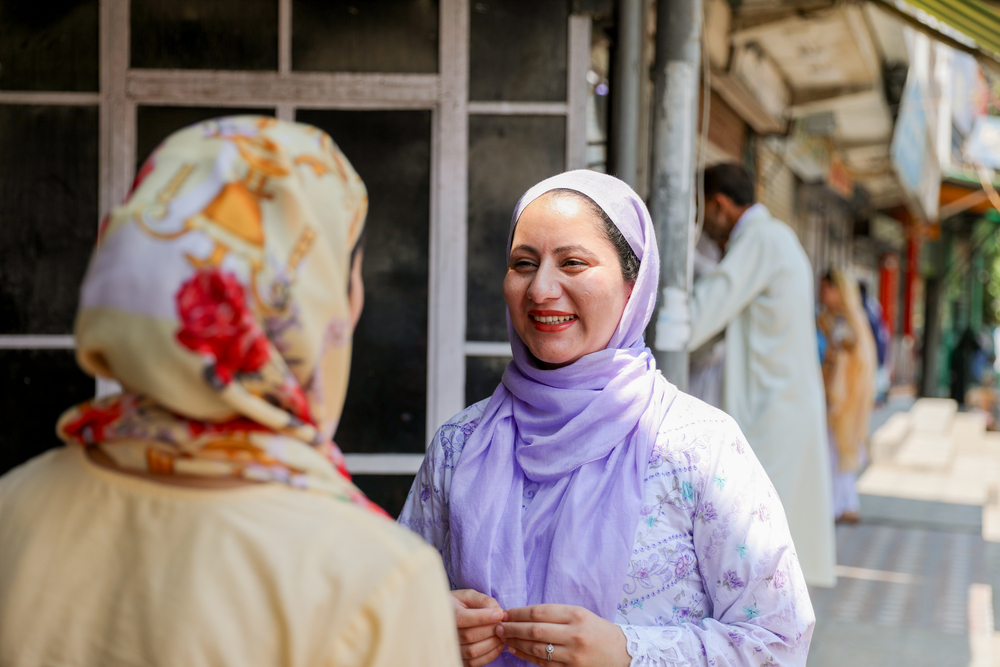
She emphasises that family support can make a significant difference in a person’s recovery. “The support you get from the family makes for half of your recovery,” Isha explains. “If your family members are understanding your problem, they are talking to you about it openly, they are not judging you and providing extra support which you need during this phase, that could help a lot.”
However, Isha also acknowledges the challenges that come with involving families. Sometimes, due to stigma or lack of awareness, families may be reluctant to seek professional help. “In a lot of families, there is not a lot of acceptance or openness to seek help,” Isha notes. “They feel like they are acting crazy, or they don’t want to work or study, or they have some other intention or hidden agenda.”
To address this, Isha and her colleagues at MSF conduct psychoeducation sessions with families. “Since in Kashmir we feel that family has a strong role, if we educate the family and involve them in the therapy, that will be quite empowering for both the family as well as the person we’re treating,” she explains.
A Story of Transformation
Among Isha’s most meaningful experiences is her work with a 17-year-old girl who had experienced significant trauma, and a difficult home environment marked by frequent marital conflict between parents.
“Whatever we discussed during the therapy sessions, she would follow it and try it and give it her best,” Isha explains. “She believed in that thing gradually and she would carry out all the things that we would discuss and she would try to implement them practically.”
The young woman’s social anxiety, stemming from past trauma, had been particularly debilitating. She couldn’t travel alone on public transportation and would freeze in fear when men were nearby, having experienced harassment even while traveling to therapy sessions.
As treatment progressed, Isha witnessed remarkable changes. “After a couple of sessions, she said, ‘I am confident and strong enough to deal with any such person. I don’t get blank or freeze. Now I am bluntly able to point out and tell them. Now I don’t feel fearful and I am able to travel alone.’”
The transformation extended to other areas of her life. She resumed martial arts classes and began preparing for her NEET exam. “Emotionally, I saw a lot of changes in her – in her body language, in her confidence, in the way she was managing her panic attacks, her emotions. Her irritability and anger outbursts had decreased to a very significant extent.”
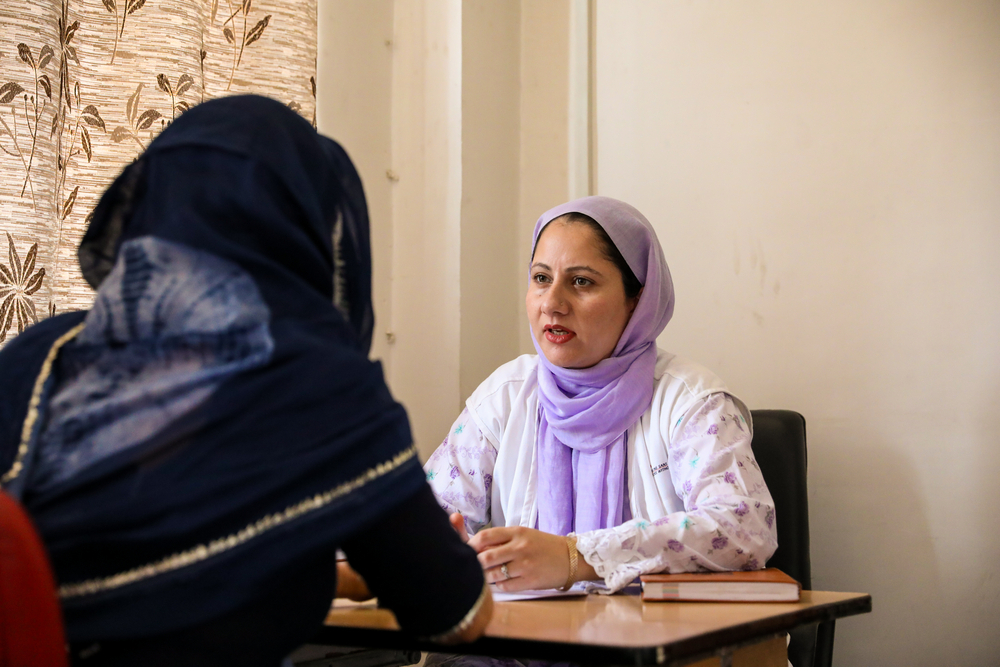
Five months into treatment, the young woman’s functionality had improved dramatically. Where once she isolated herself within “the four walls of the house,” she now actively engaged with life, visiting relatives and playing with other children. Her therapy sessions, initially weekly due to the severity of her symptoms, were reduced to monthly check-ins.
For Isha, this case exemplifies the profound impact of compassionate, culturally sensitive care. Isha is highlighting the collaborative nature of the therapeutic relationship. “She would constantly share her achievements: ‘I can now travel alone, I have joined martial arts back again, I go to my cousin’s place, I feel nice playing with the other kids in the house.’”
This story of transformation stands as a powerful testament to both the young woman’s resilience and Isha’s skilled, dedicated approach – a vivid illustration of how the right support can help trauma survivors reclaim their lives.
The Healing Canvas: Art as Therapy and Self-Care
Amidst the emotional demands of her work, Isha has cultivated effective ways to manage stress and maintain her own mental wellbeing. Her approach to self-care is both practical and creative, drawing on personal passions that bring her joy and restoration.
“Spending time with family, friends or going out maybe for a drive or maybe for a day picnic or eating something nice, that also helps,” Isha shares when discussing how she prevents burnout. These simple pleasures provide necessary respite from the emotional intensity of her clinical work.
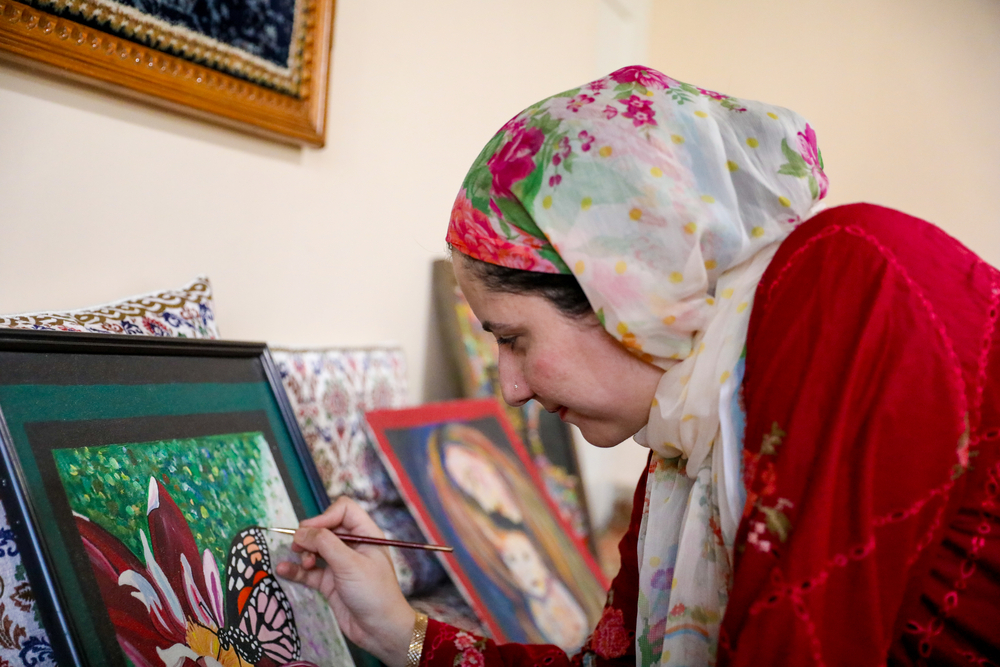
Particularly notable is Isha’s lifelong connection to art. “I used to do a lot of painting and arts and crafts,” she reveals, though she acknowledges that increasing responsibilities have limited her time for this passion. Nevertheless, painting remains an important outlet for her – both as a hobby and as a metaphorical framework for understanding her therapeutic work.
This creative practice isn’t merely recreational for Isha; it serves as a meaningful metaphor for her approach to mental health. Just as she carefully applies each brushstroke to create a beautiful painting, she helps her patients add color and vibrancy back into their lives, ensuring that traumatic experiences don’t define their entire narrative.
A Vision for the Future
Isha’s long-term vision is as vibrant as a well-composed painting. She hopes to see a significant reduction in stigma, increased awareness about mental health, and a community where seeking help for mental health issues is as normal as addressing physical ailments.
The Masterpiece of Community Wellness
As Isha continues her work, she’s not just treating individuals; she’s creating a masterpiece of community wellness. With each person, each therapy session, and each community outreach program, she’s adding strokes of hope, resilience, and understanding to the canvas of Kashmiri society.
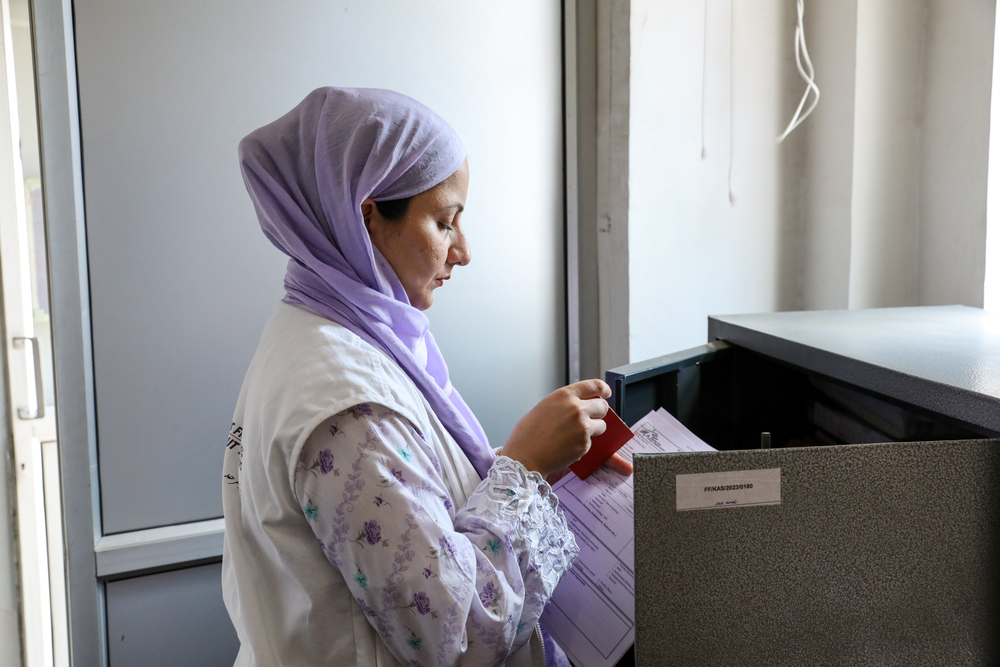
“Seeing those people stride through difficult and challenging situations and evolving as better persons has also helped me build my own personal resilience,” Isha reflects. Her work with MSF is not just about treating individuals; it’s about painting a new picture of mental health for the entire community.
In the end, Isha’s greatest work of art isn’t hanging on a wall—it’s the transformed lives and minds of those she touches every day, a living, breathing testament to the power of compassion and dedicated care. In a region where mental health challenges persist, Isha Malik stands as a beacon of hope, using her skills and compassion to paint a brighter, more mentally healthy future for Kashmir.












